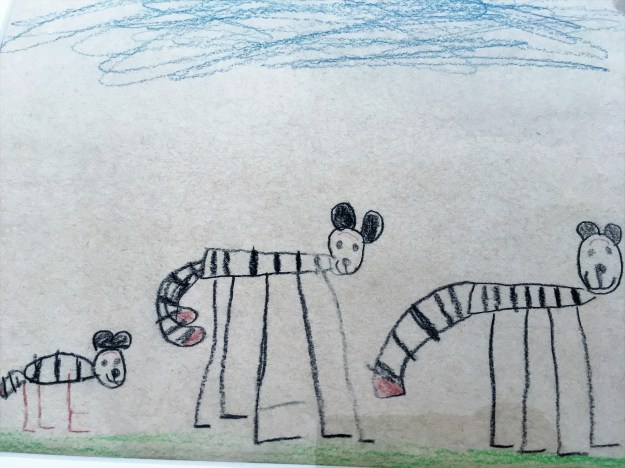 When children don’t get well, when there is no adequate treatment, and they remain ill, we need to step in and fight for their right to be part of society. When children don’t get well, time passes by, sometimes like treacle, sometimes quickly, with the realisation that another school year has whipped around, painfully, as peers go on living their young lives and growing up without the sick friend with whom they used to play, lacking the qualifications required to enter adult life, be that from bed, in a wheelchair or as a recovered person one day. Days become weeks, weeks become months, and, horrifyingly, months segue into years. Children become adults eventually and we have a duty of care towards all children to make their lives and transitions into adulthood safe and meaningful ones. So much depends on how parents, relatives, friends, medical professionals, social workers, the formal education system and children’s peers grapple with chronic illness.
When children don’t get well, when there is no adequate treatment, and they remain ill, we need to step in and fight for their right to be part of society. When children don’t get well, time passes by, sometimes like treacle, sometimes quickly, with the realisation that another school year has whipped around, painfully, as peers go on living their young lives and growing up without the sick friend with whom they used to play, lacking the qualifications required to enter adult life, be that from bed, in a wheelchair or as a recovered person one day. Days become weeks, weeks become months, and, horrifyingly, months segue into years. Children become adults eventually and we have a duty of care towards all children to make their lives and transitions into adulthood safe and meaningful ones. So much depends on how parents, relatives, friends, medical professionals, social workers, the formal education system and children’s peers grapple with chronic illness.
One consistent light has been Jane Colby of Tymes Trust (The Young ME Sufferers Trust), who, with her tireless efforts and her background as a former head teacher, has given hope and hands-on help to families in dire situations. Jane’s blog post is a call to arms against mechanical thinking when faced with chronically ill children, it is a call to rethink social and medical care, the education system and ultimately, it is a call to rethink society. This is where Jane’s and our interests converge, where our hearts and heads meet to say to the wider world ‘You can do better by our ill children.’ When children don’t get well, they require social cohesion, a society that takes care of them. They don’t need a housing crisis, cruel assessments and bleak future outlooks. We can decide to render education, social care, and medical care accessible and reasonable. We can decide to be strong together for our ill children for whom we wish nothing more than the care and love they need to grow, flourish and come into their own. We can decide to fight for access to education, social care and independent living for this generation and future generations of chronically ill children.
Dr. Claudia Gillberg, PhD in Education, Senior Research Associate at the Centre for Lifelong Learning, Sweden, Fellow at the Centre for Welfare Reform, United Kingdom, co-author on Utting Wolff Spouts, Tutor for Chronically Ill Children and Adults
research@claudiagillberg.com, @DrCSGillberg
TIME FOR A PROFESSIONAL RETHINK ON ME : Your heart is as important as your head
by Jane Colby, FRSA, former headteacher, Tymes Trust Executive Director, @JaneCColby @tymestrust
In 1985 I was taken seriously and severely ill, and that is how I learned about ME. It was sudden; the virus that invaded my body, also robbed me of brain function. My virus was identified in a research programme to be a relation of polio myelitis, that terrible disease that once paralysed and killed children. It took my career as a head teacher, my sport, my dance, my ability to run the family home. It plunged me into constant, burning, neuropathic pain, made me topple downstairs when my brain forgot how to put one foot in front of the other, caused blackouts and collapses, and turned bits of me to lumps of unfeeling dough. My muscles were like water; light and sound were intolerable.
It is an unfortunate fact that the most enlightened, well intentioned and thoughtful professional will not be able to internalise the unimaginable horror of this. Please accept at the outset, that if you have not personally experienced it, you will need to take it on trust that the level of fragility of any apparent improvement makes ‘rehabilitation’ into some kind of sick joke. Don’t be hoodwinked by such talk. ME causes greater debility than many other severe and chronic diseases, children’s quality of life is worse [1] and rehabilitation too often equals exacerbation. You can all too easily push a child’s ME into severe ME.
Should we be surprised, then, that ME is the biggest cause of long term sickness absence from school, in staff as well as students? It was in fact the largest ever such study which established that fact (2) and was soon replicated in a smaller study by a community paediatrician. The reason is not avoidance, not fear, not laziness, not separation anxiety, not choice. There is no choice. In the absence of a cure, the body, including the brain, must be allowed to heal. This healing process can be compared in some ways to the healing of a cut. A cut closes up, scabs, makes new skin underneath, loses the scab, and the daily miracle of self healing has taken place. We can assist this natural process if we protect the cut while it heals, and allow sufficient time for the healing process by letting the scab shed itself naturally.
Everyone knows what happens if you pick a scab off a wound before repairs have been effected, before firm new skin has sealed the wound and become strong. Raw flesh is revealed, it bleeds, there is the potential for infection. The whole healing process has to start afresh. Please consider this analogy carefully! When professionals encourage – or pressurise – families to get their child with ME into school, they might as well be taking their nails to a scab and tearing it off. A bleeding cut is visible, you can see the damage. You cannot see the hidden damage you cause if you try to force recovery from ME, and enforce school attendance, you can only see its effects. “Seeing’s believing” as the old saying goes. The child may have looked strong enough. S/he was not. And the effect can be terrible. This is the classic delayed effect of effort that occurs in ME, and it leads to disbelief, accusations, confrontations. The level of disability in ME is often beyond comprehension to the healthy and well. Likewise, the time needed for healing. It may never resolve, despite the body’s best efforts. Professionals must not go round tearing off the scabs.
Where does discrimination fit into all this? When, on behalf of Tymes Trust (The Young ME Sufferers Trust) I informed NICE, the National Institute for Health and Clinical Excellence, that children with ME suffer discrimination, this is what I was referring to. These children are typically not allowed to heal, and are not offered, or are even denied upon request, modern methods of education such as interactive virtual education. This can be pursued, with success, at home during the long fragile healing process, a process which takes not weeks, not months, but years. You cannot see this healing. But you’ll know when it’s happening; they will gain sufficient strength and stamina to manage bite size chunks of mental work, they will achieve academic successes and qualifications, little by little, and their health will not be put in jeopardy. I am in awe of these children’s resilience and determination. Nevertheless, many may not be well enough for any mental work. Because ME is centred in the brain, intellectual effort can be as detrimental as physical effort.
In 2003, Tymes Trust began collecting responses from 126 parents for a report that was eventually called ‘The Forgotten Children : a dossier of shame’. 81% of these families had needed to change schools to get support. This is a huge percentage. 84% had felt threatened or bullied by professionals. Fifteen years later we are still hearing tales of discrimination and, if anything, the situation seems to be worse. There is a dogma out there. It says, this is how a child with ME should behave. This is the pattern they must follow. They must be pressured to get that bum on that seat, no matter whether they can even think straight, concentrate, or how ill they feel when they make intellectual effort, not to mention the physical toll taken by expending their precious, tiny cache of energy to even get there. A paediatrician has said quite bluntly that this is the fault of his own profession, which has fallen for the hollow promise that psychological therapies (Cognitive Behaviour Therapy) and physical rehabilitation (Graded Exercise Therapy or Activity) will magic away the horrific disease known as ME. (The use of the Chronic Fatigue umbrella label, which is so inadequate and inaccurate for classic ME, leading to misdiagnoses, has been counterproductive.) Moreover, this hollow promise in recovery through these therapies has polluted the teaching profession – my profession – with the same belief, resulting in double discrimination. The families are met with it at every turn.
So here is where it gets personal. As a former head teacher with a deep belief in the value of education and as someone who does not need to imagine ME-related disability, but has lived it, I know from my own prolonged ordeal (no, that is not over the top!) that these youngsters are, in effect, facing cruel punishments because society has abandoned compassion and is obsessed with cramming children into state-approved moulds. As the parents put it: The state might as well shut them in a medieval torture chamber and have done with it. At least that would be more honest. “Look, we’re going to go on like this until you comply, or leave state education altogether. Be off with you. Take yourself off our hands.” Many schools have told parents to do just that, and many parents have done it. Ironically, I do not know of any parent who has regretted it. Of the 126 parents in the ‘dossier of shame’, 63% had withdrawn their child from state education and 72% had no confidence in the state to educate children with ME. What a terrible indictment of my own profession. The model of disability that regards it as greatly the fault of society, which disables people by not respecting or providing properly for them, is particularly apt.
One of the things Tymes Trust does is to award nominated teachers and schools, and sometimes doctors, with a “Young Hearts” Award Certificate if, in the midst of all the pressure on them from officialdom, their innate humanity – and yes, their essential goodness – leads them to do right by these children. You do not need to understand ME to know that a child is sick and needs your help. I am reminded of the headteacher who helped a young boy gently, patiently, over a period of years, to make a substantial recovery, without having been taught anything about ME, and without considering whether it even qualified as a disability. He just knew that the child was very ill, and very easily made worse. The word ‘convalescence’ should be in every doctor’s and teacher’s vocabulary. We can add others to our lexicon: kindness, humanity, generosity of spirit, imagination, care. You can do it, my fellow professionals. Start today.
Further reading
http://www.tymestrust.org/pdfs/ttmeisphysical.pdf http://www.tymestrust.org/pdfs/dowsettcolby.pdf
